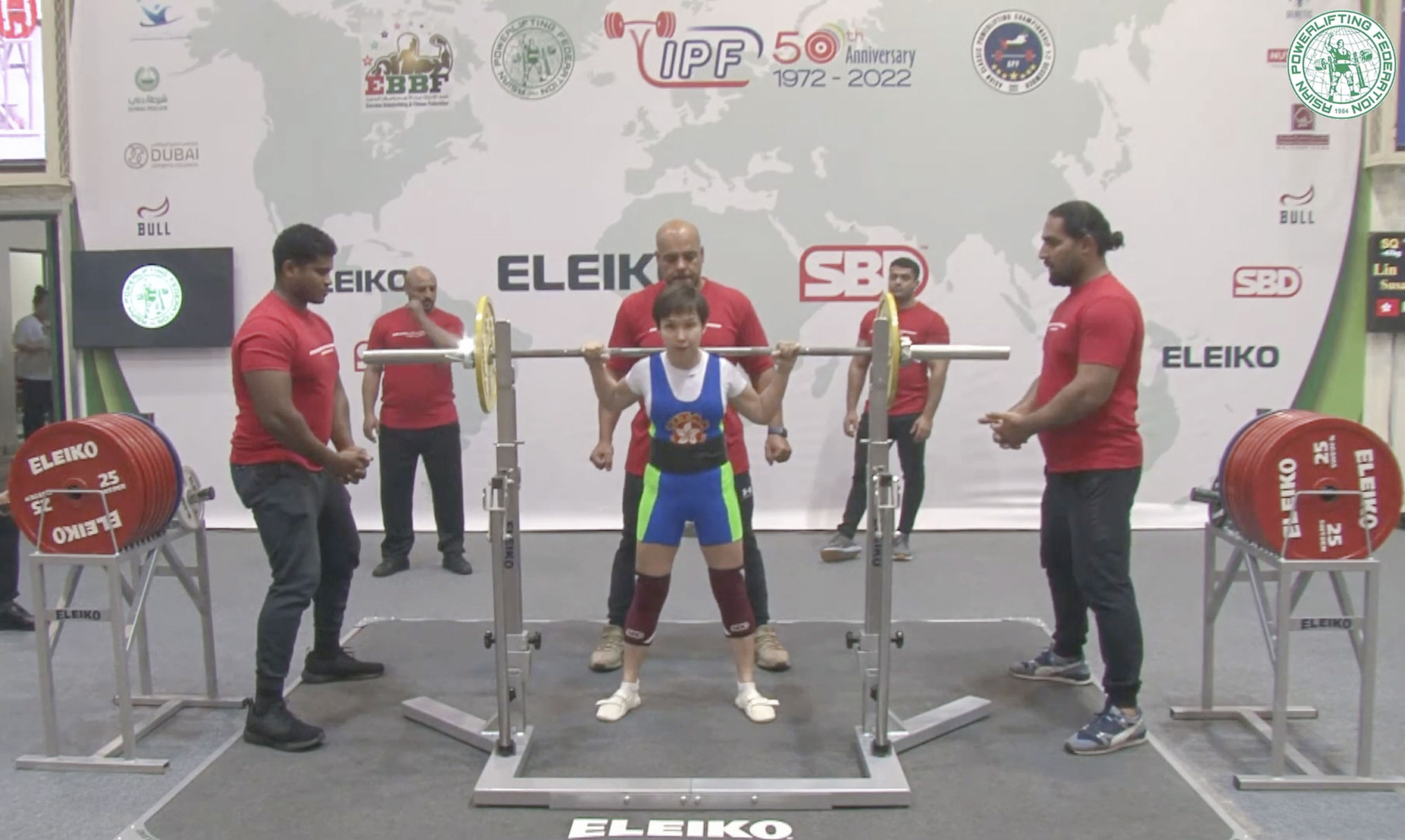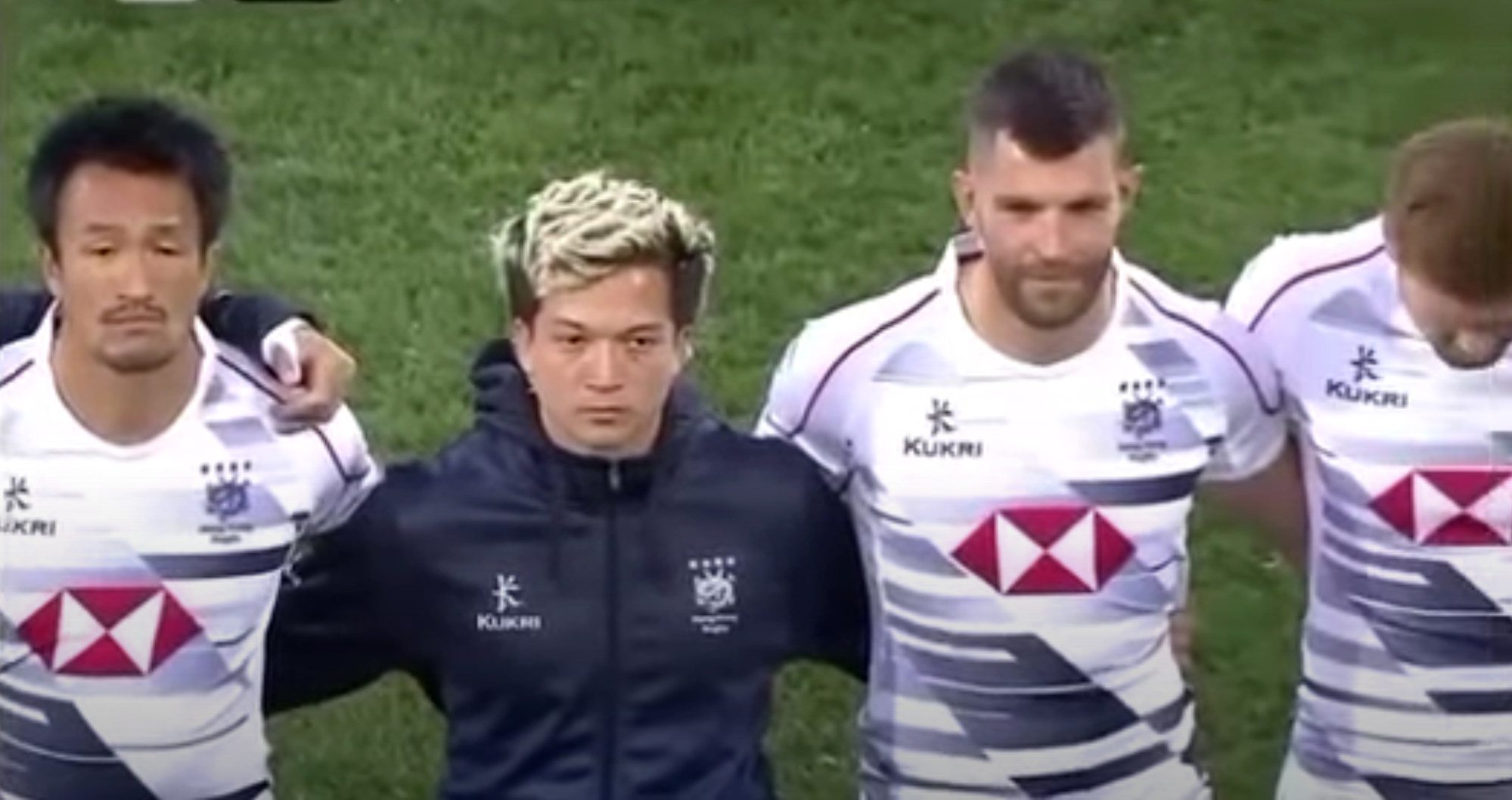
National anthem blunders: Hong Kong police to investigate playing of protest song at Dubai powerlifting event
- Acting sports commissioner commends athlete and committee members at the scene for reacting immediately when wrong song was played
- Technical team comprising volunteers responsible for error, president of Asian Powerlifting Federation says in letter
Hong Kong police will investigate after a protest song from the anti-government unrest in 2019 was wrongly played instead of the Chinese national anthem at an overseas powerlifting competition, the acting sports commissioner has said, while the organiser of the event has apologised for the blunder.
Paul Cheng Ching-wan, from the Culture, Sports and Tourism Bureau, on Sunday said police and the Sports Federation and Olympic Committee of Hong Kong, China would carry out a probe into the incident. The force has previously launched investigations into similar mix-ups involving the Chinese national anthem at recent overseas rugby matches.
A video online showed that in the latest incident on Friday at the Asian Classic Powerlifting Championship in Dubai, the song “Glory to Hong Kong” was played during a medal awarding ceremony where athlete Susanna Lin won gold. After the 15-second mark, Lin was seen making a “T” sign with her hands to alert the organisers of the blunder, with the Chinese national anthem “March of the Volunteers” being played soon after.

“Glory to Hong Kong” was written during the 2019 anti-government movement, becoming a protest anthem sung at rallies and by some spectators at football matches.
The Asian Powerlifting Federation, the organiser of the event, on Saturday said in a letter that a technical team had made the error.
“The technical team [is] made up of volunteers from various countries and the members do not have [an] idea what the Hong Kong, China national anthem should be,” Farshid Soltani, the organisation’s president, said in the letter addressed to the Hong Kong Weightlifting and Powerlifting Association.
“The technical team [had] downloaded all national anthems from the internet to prepare for countries who did not bring their national anthems. As the technical team needed to manage multiple versions in the computer, the incorrect file was not deleted and was opened during the award ceremony.”
Soltani said that the Hong Kong team had informed the technical staff immediately of the blunder, and the song was stopped before the Chinese national anthem “March of the Volunteers” was played. The event went on smoothly afterwards, he added.
He also said participating countries and regions were asked to submit their national anthems and that the Hong Kong team had provided one to the organiser upon arrival.
“The technical team has examined the files of national anthems after the [incident]. [The federation’s] executive committee and the technical team will ensure such [an incident] will not happen again,” he said.
The committee earlier said that the Hong Kong Weightlifting and Powerlifting Association had acted according to guidelines that were issued following similar anthem blunders recently, and had provided a recording of “March of the Volunteers” on November 28 for use at the event.
Acting sports commission Cheng said the guidelines had been effective, as the athlete and the committee members on the scene reacted immediately when the wrong song was played.
“We think they have done a proper job in upholding the dignity of the national anthem, the dignity of the country,” Cheng added.
A police spokesman said they would investigate whether the incident involved a conspiracy to violate the National Anthem Ordinance or other Hong Kong laws.
Pui Kwan-kay, honorary vice-president of the committee, stressed that organisers should not be downloading the national anthem from the internet. He said a Hong Kong representative had brought an official copy of the national anthem to the competition, but the organisers had downloaded a song from the internet instead.
“This led to a serious mistake, so we hope to remind the organisers to not cause controversy. We want them to pay attention and treat this matter seriously,” Pui said.
The Hong Kong government earlier said in a statement that it “strongly deplores and opposes the incident”, adding it had asked the Sports Federation and Olympic Committee of Hong Kong, China to follow up “in a serious manner”.
The incident follows a string of mix-ups involving the Chinese national anthem at overseas sports events recently. During the Asian Rugby Sevens Series in Incheon, South Korea on November 13, the protest song was played instead of the national anthem as the Hong Kong team prepared to take on the hosts, drawing the ire of government officials and sparking a police probe.

Two more similar blunders involving the city’s rugby team came to light on November 19.
Footage carried on a popular sports streaming site showed a rugby match on November 6 in Dubai between Portugal and Hong Kong during which the correct music was used, but it was wrongly labelled as “Glory to Hong Kong” in a graphic by a TV station that broadcast the game.
A similar episode also occurred during the broadcast of a match between Hong Kong and Tonga held in Australia on July 23.
The police spokesperson said that the force had also investigated the blunders involving the wrong labels.

